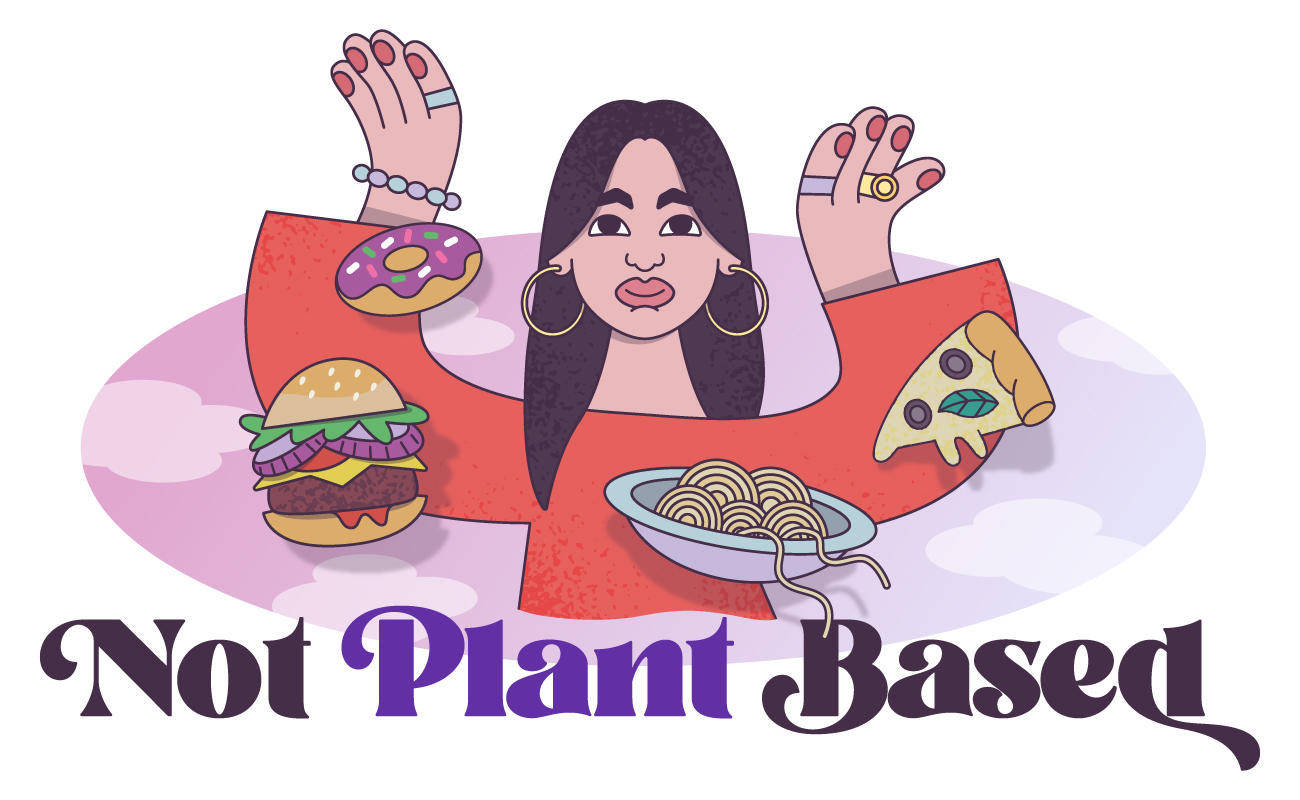
I was one of the lucky, chosen few to be brought up by a dedicated feminist [see below]. When every other toddler was struggling with finding the words to inform their parents of an incoming poo, I was walking around north London telling anyone who would listen: “I am a strong woman”. Pretty cool, but also pretty annoying for my neighbours. I was always told I could be anything I wanted to be – anyway I chose how – and would watch in awe as my mother took down our slightly misogynistic family friends during heated debates. One stale, white man at a time.
Yet, despite my, ‘it’s what’s inside that counts’ upbringing, I still developed an eating disorder. What does this tell us? Well, for one, it further emphasises what we already know; that EDs aren’t necessarily the result of aesthetics or how we feel about the way we look. Secondly, and most importantly, it says a mouthful about the all consuming power of a repressive, patriarchal society. You can be granted all the tools to fight the dragon, but if that beast exhales its fire breath on you, you’re pretty much fucked. Well, for a little bit anyway.
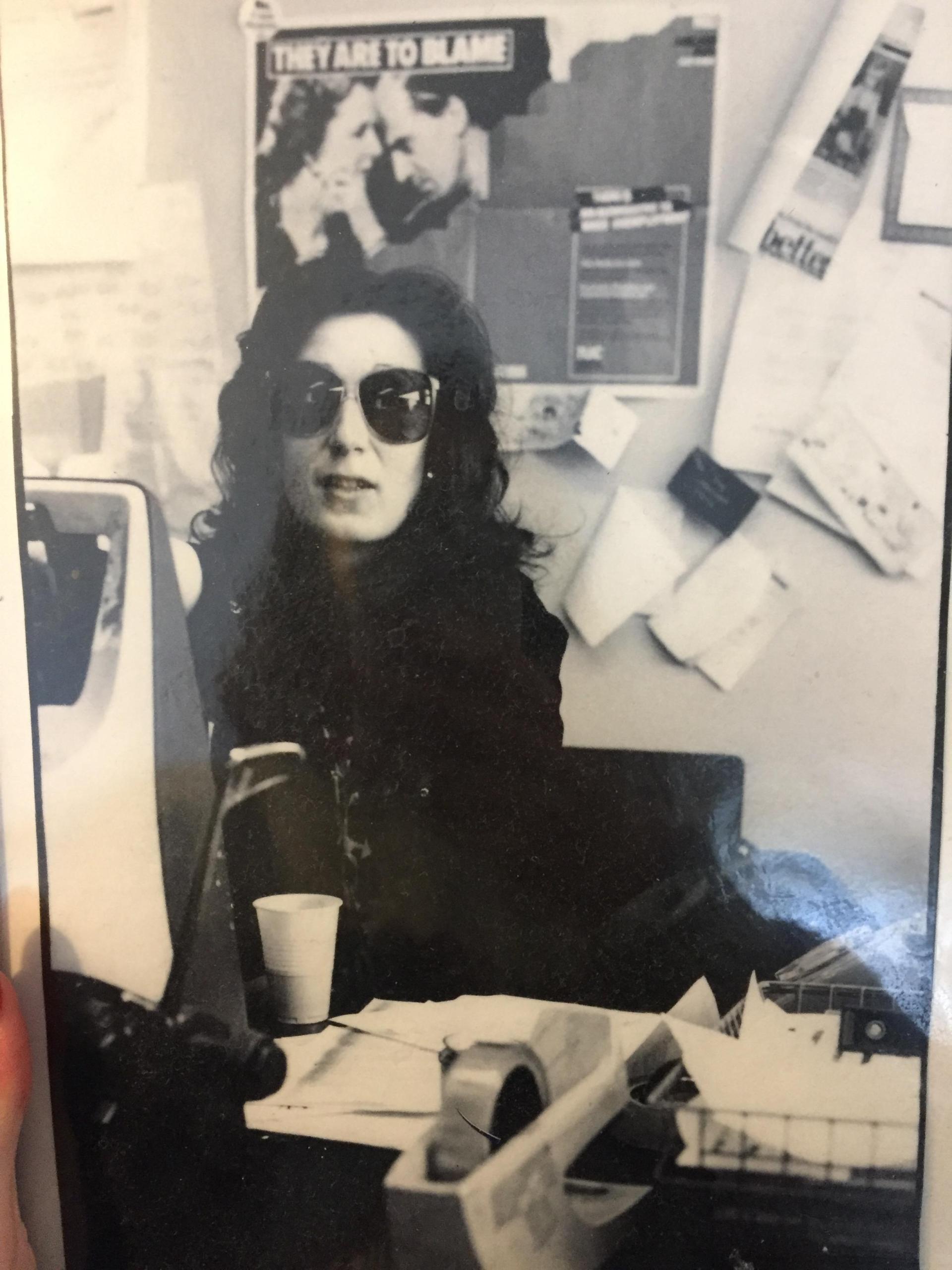
Pictured: said feminist mother in her hey-day
It was during the early days of recovery that for the first time ever, I dared to delve into the intellectual abyss of Mum’s feminist book shelf. Written in 1978, by psychotherapist Susie Orbach, Fat Is A Feminist Issue was a seminal text that highlighted the dangerous links between gender inequality, the diet industry and those who suffer at the hands of it. It was the first time that a viable explanation was offered to women who struggled with their weight – and with food – other than the unhelpful, age-old alternative; ‘you are greedy and fat’. Unbeknownst to me, the book had sat on mum’s book shelf for all those years, waiting for me to seek it out at a time when the patriarchy had suitably fucked me over.
Within days, I’d inhaled the book’s message, passed it on to Laura and contacted Susie to ask her for an interview. It took about five minutes of my incessant fan-girling before we got into the nitty gritty of diet culture BS (couldn’t help myself). Naturally, I began by asking her thoughts on the clean eating trend – is it just another manifestation of the fat phobia she wrote of 40 years ago? “I’m sorry, I don’t like it,” she says defiantly. “It’s just another way of managing eating difficulties, but by another name.
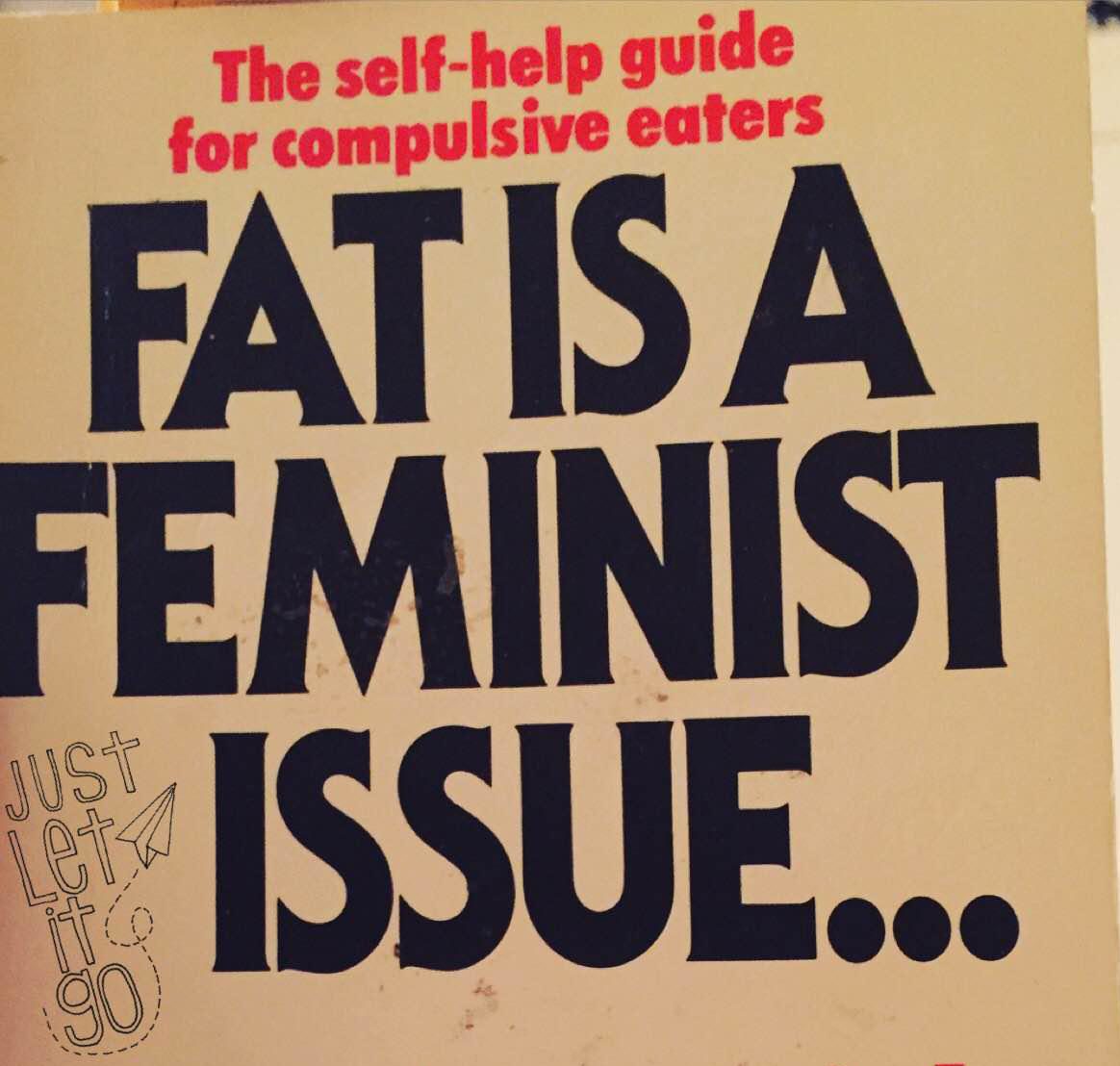
“The idea, to me, sounds like exclusion. Food is divided up into toxic categories and adds to people’s reasons to be frightened by food. I think it will – more than likely – lead to compulsive eating and whatever else comes along with that.” It must be frustrating for the 71-year-old to witness the limitations that women are still applying to themselves, despite the freedom we’ve acquired over the past 40 years. Even more depressing is the fact that, as far as Susie’s concerned, when it comes to women’s bodies, things have got even worse.
“The whole image-based thing is terrifying,” she says, “when I wrote Fi-Fi (she so lovingly calls it), we were already seeing something like 5,000 digitally enhanced images. Now it’s not possible to count how many there are. “With Instagram, for example, it makes the body a performance, rather than the place we live from. Looking to camera all the time encourages us to only look at ourselves from the outside.”
Susie’s classic – republished last year with an updated, frank introduction – details years of clients’ therapy sessions, all of whom have sought help on account of their weight, or relationship with food. These personal stories are intertwined with Susie’s expert comments, citing evidence from physiological and sociological studies to support her arguments. Throughout, patients eventually land at the conclusion that they’d be much happier and healthier should they accept their body for the way it is. Naturally. Easier said than done, right? I, for one will happily admit that I still have a long way to go in terms of making peace with my naturally occurring state, despite the amount of time I spend telling other women to love themselves. I’m armed with all the knowledge and unconditional love, as well as a naturally small physique, yet I continue to stare at my flabby arms and ab-less stomach, willing them to morph into something more Women’s Health-worthy [see below].
In 2017, with the influence of body positivity rife and an increasingly diverse representation of beauty, is it so damn hard to shift those age-old ideals? “It’s because it happens right from infancy and onwards,” Susie explains. “It’s trickled down the generations. From grandmothers, to mothers – without them even realising.” I think of my mother and her constant reminders of how ‘beautiful’ I am, even when -objectively speaking – I’m really not. Not once in all my 26 years has she ever commented on my weight, or appearance in a negative sense (except, of course, when I was dangerously thin), and she’s forever telling me off for my self-criticism.
Whilst my upbringing wasn’t ‘fatist’, it was almost certainly anxious. A combination of my dad’s cancer – and later death – and my mum’s inflammatory bowel disease (which is triggered by stress), made for a particularly worried household, which, unsurprisingly, found it’s way into my nervous system. A lot of things had gone wrong and so, inevitably, we were scared of would happen next – and what we could do to avoid it. Aside from life’s explosions, I’ve always been anxious and, surprise surprise, so has my mum. Whether it’s down to genetics or mum’s exposure to my grandmother’s manic depression – who knows. Either way, Susie’s theory seems to make sense.
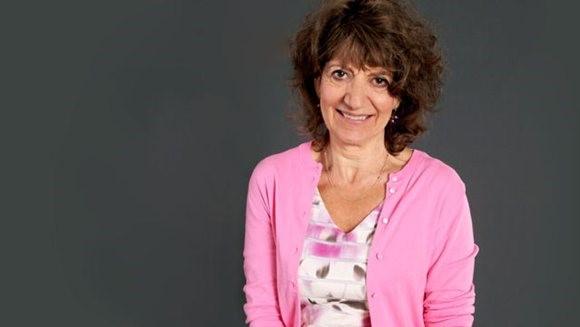
It’s all very well understanding where such biases come from, but how do we get them to fuck off forever? “We have to change the focus from how we present outwardly, to valuing the contributions we make and who we are as people. Stop focusing on body and size and trying to alter it.” With the bombardment of messages – even from the Government – encouraging weight loss and size alteration, Susie’s ideal world is pretty far off. Not to mention the aggressive marketing of diet and weight loss companies, some of which are endorsed by our Government. “Weight Watchers themselves spoke at an all parliamentary body,” she recalls, “and admitted that the average amount of weight that they are successful in shifting, long-term, is five kilos.
“We’re giving the NHS money for food deprivation schemes like Weight Watchers. I don’t think the person who is very overweight will find that weight watchers is a sustainable life. If they do feel better that’s great, I’d like to speak to them five years later and see if they say the same, as we know there’s a 97% re-metabolism rate.” Then there’s the issue of how exactly we’re measuring body weight. It seems not a day goes by, recently, in which a dietitian or healthcare professional doesn’t rant about the inaccuracies of the commonly used, perceived ‘indication’ of health. And Susie is no exception.
“The nature of the BMI is completely off,” she tells me. And if ever I had any doubt as to the criticisms of BMI, Susie’s next gem of insider information was about to irradiate them all and make me really fucking angry. “BMI was created by the International Obesity Taskforce. If you look who was on the panel – it was all people who were part of ‘obesity incorporated’. Otherwise known as the people who make you feel that being fat is the worst thing in the world – they are all size-ist.” It’s worth pointing out that Susie’s claims are just that – claims – but, on closer inspection, there does seem to be some speculation as to the parallel agenda of some obesity experts and the diet pill industry. What’s more, there’s an army of evidence suggesting that BMI is a crude, largely invalid measure of health. Data analysing 100 studies on the health of almost three million americans found serious shortfalls in the scale, with those classed as ‘overweight’ LESS likely to die than ‘normal’ bodies. Even the academics recognise that assessing ones’ health based purely on an age-old scale is pretty unscientific. Dr Katherine Flegal at the US National Center for Health Statistics told The BBC: “I don’t think weight is synonymous with health and I think our study shows that it’s not synonymous with mortality.” Susie goes one step further in saying that the very idea of judging people on their weight is part of a much bigger consensus that has infiltrated our psyches thanks to the societal pillars that refute its messaging.”It’s the whole notion that you have to be in control,” Susie explains, “it works by telling you that you have to do this, you have to do that in order to have a job – in order to have a life. “Our big beliefs – the corporate mantra – are funded by the fashion, style and diet industries.”
As for the future, Susie is worried. Really worried. Lots has changed in 40 years – but with increased opportunity comes increased expectation, most of which is near impossible and often results in the same sense of entrapment felt my our mothers, and our mothers’ mothers e.t.c… Perhaps Susie is right and the pressure of regular Instagram posting isn’t much different to the pressure to deliver dinner to the table (and wear your skirt perfectly positioned just below the knee at the same time). Okay, I’m exaggerating slightly, but the author is sure that the more time we spend staring at unattainable images, the less likely we are to achieve ultimate comfort in our own skin.
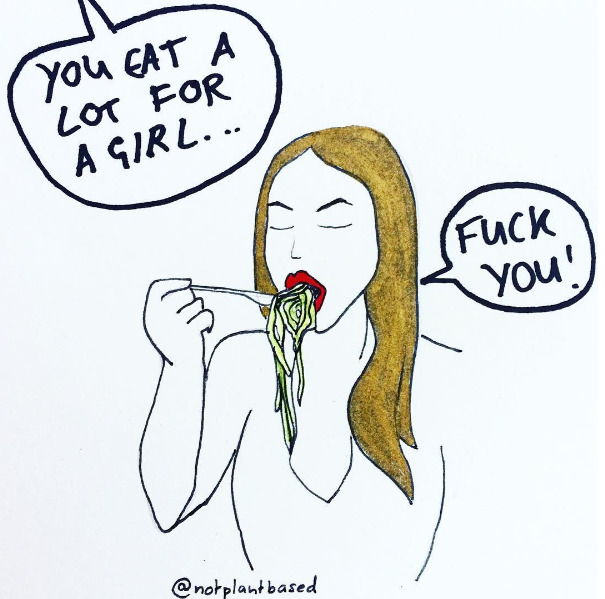
“Sadly, being a bigger body has become even more stigmatised because of the sheer number of digitally enhanced images of bodies that simply aren’t real.” But what about the body positivity movement? Surely that’s some evidence that women are beginning to claim back the term, ‘beauty’? Although impressed at the tenacity of my fellow millennial women, Susie isn’t certain that body positivity is enough to battle the ancient beast of oppression. “There are youngsters walking around who say that they feel great about their size,” she says, “but I’m not sure if they truly do because the messaging of ‘fat is bad’ is so intrinsic in our world that it becomes internalised. The repercussions span across several generations.” Although Susie’s attitude appears defeatist, it’s refreshing to hear of a realistic view – especially as I’m often frustrated at my own inability to truly love my body.
There is a solution, however. And it comes from you, and me, billion dollar corporations, and the bloke who sells you coffee every morning. If enough people are fighting for the same cause, eventually, something’s got to give. “We HAVE to value the contributions that we make to society, instead of focusing on the external. Everyone should be challenging size-ism in whichever way they can. Try and eat when you’re hungry and stop when you’re full, as well as understanding why you might fail to do so. That way, we promote a positive relationship with food. Everyone can provoke conversations about the negative effects of body preoccupations – with anyone.”
Since reading FIFI, I’ve had several uncomfortable conversations with friends of friends, colleagues and Uber drivers. It always goes the same way; ‘I shouldn’t eat this because I don’t want to be fat’, they tell me. To which I reply, ‘what’s wrong with being fat?’ Generally, after I’ve explained that ‘fat’ doesn’t necessarily mean unhealthy, and that overall wellness – if that’s well and truly what they are pursuing – incorporates several factors, most of which they haven’t even considered, a silence ensues. The lengthy pause usually indicates the coming-to-terms with an internal fat bias, after which, they whisper something along the lines of, “it just looks bad, I guess.” Queue my raised eyebrow and sympathetic head tilt. It might take more than one conversation to change their attitudes, but if it means that – later that day – they can enjoy a chocolate bar in peace, I’m happy.
Check out the Anybody website, to which Susie is a regular contributor.

